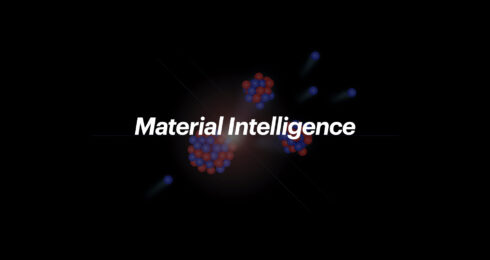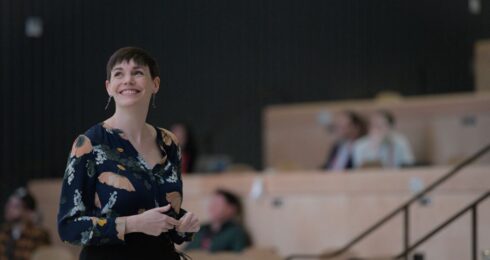Dr. Alberto Nocera is a Staff Scientist at the University of British Columbia’s Stewart Blusson Quantum Matter Institute (UBC Blusson QMI), where he studies the intersection of condensed matter physics and quantum computing.
Alberto’s research centers on the complex behavior of quantum materials, with a focus on many-body systems. His work is driven by computational methods grounded in tensor-network techniques, particularly the Density Matrix Renormalization Group (DMRG), which is among the most powerful tools for studying strongly correlated electron systems.

Image: Dr. Alberto Nocera, Staff Scientist, UBC Blusson QMI.
These tools have long been critical in the theoretical study of quantum materials and are increasingly essential in benchmarking quantum technologies like quantum simulators.
A central focus of Alberto’s research is the modeling and numerical evaluation of dynamical response functions—key quantities that reveal the fundamental excitations in quantum materials. His work directly supports the interpretation of advanced spectroscopic experiments such as inelastic neutron scattering (INS), angle-resolved photoemission spectroscopy (ARPES), and resonant inelastic x-ray scattering (RIXS).
Alberto has applied his expertise to a range of quasi-one-dimensional quantum materials, shedding light on the complex behavior of compounds such as Ti₄MnBi₂, Sr₂CuO₃, Y₂BaNiO₅, Sr14-xCaxCu₂₄O₄₁, and BaFe₂S₃. His research has provided valuable insights into the electronic and magnetic excitations of these systems.
Since joining UBC Blusson QMI in 2018, Alberto has contributed to several significant collaborations. He began his work at the institute in partnership with Prof. Ian Affleck, studying the exotic properties of frustrated Kitaev spin chains. In 2022, his research branched into the quantum computing space through a collaboration with Prof. Marcel Franz and the quantum computing company D-Wave Inc. Backed by a $911,400 NSERC Quantum Alliance grant, this project demonstrated that next-generation quantum annealers could simulate the dynamics of quantum spin glasses—an achievement currently beyond the reach of classical computational methods.
Alberto has also collaborated closely with Prof. Mona Berciu to develop theoretical models of polarons and bipolarons, with direct applications to ARPES experiments.
Before his time at UBC, Alberto was a Postdoctoral Research Associate at Oak Ridge National Laboratory and Northeastern University in the U.S.. He earned his Ph.D. in Physics from Università degli Studi di Roma Tre in 2013. Outside his contributions to condensed matter physics and quantum research, Alberto enjoys swimming, as well as cooking.


